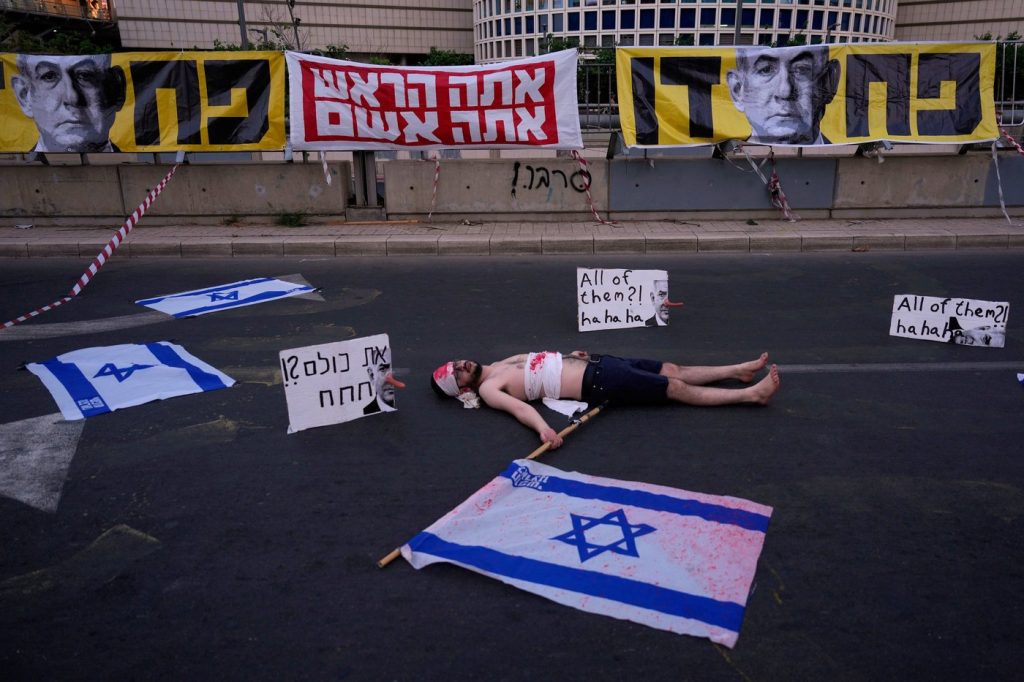TEL AVIV, Israel (AP) — As the ongoing conflict between Hamas and Israel approaches nearly 20 months of warfare, Hamas is proposing amendments to the latest U.S. ceasefire proposal. A senior Hamas official disclosed this information, stating that the amendments concern “the U.S. guarantees, the timing of hostage release, the delivery of aid, and the withdrawal of Israeli forces.” U.S. envoy Steve Witkoff, however, characterized Hamas's response as “totally unacceptable.”
The contention in negotiations coincides with rising desperation among Palestinians, many of whom are experiencing severe hunger, as well as families of hostages held in Gaza. A separate statement from Hamas indicated that their proposal aims for a permanent ceasefire, a complete Israeli withdrawal from Gaza, and the assurance of aid flow. They proposed releasing 10 living hostages along with the bodies of 18 others in exchange for an agreed number of Palestinian prisoners, despite an estimated 58 hostages still held by Hamas, with Israel believing that 35 of them are deceased.
In contrast, Witkoff described a framework proposal for a 60-day ceasefire that would facilitate the release of half the living hostages and the return of half of those who have died. He urged Hamas to accept this framework, suggesting that talks could commence as soon as next week. Israeli officials have expressed approval for the U.S. proposal regarding a temporary ceasefire, with U.S. President Donald Trump suggesting that negotiators were nearing an agreement.
Amid the negotiations, Bassem Naim, a senior Hamas official, accused Israel of deviating from agreed-upon provisions and exhibiting a “complete bias toward the other side,” undermining the impartiality of the mediation efforts.
As the situation deteriorates within Gaza, many residents are voicing their exhaustion over the continued violence. One man from the Al-Bureij refugee camp expressed a universal sentiment, stating, “We want the bloodshed to stop. I swear to God, we are tired.” The humanitarian crisis is intensifying as Palestinians report blocking and offloading 77 food trucks from the U.N. World Food Program. This occurs against the backdrop of a monthslong Israeli blockade, which has led to increasingly severe hunger among the population of over 2 million people in Gaza.
The U.N. reported that while Israel allowed some aid to enter in recent days, it remains insufficient. Israel's military body responsible for aid coordination, known as COGAT, stated that 579 trucks of aid had entered Gaza in the past week, falling significantly short of the 600-per-day average previously reached under another ceasefire agreement that ended with renewed military action.
The U.N. has indicated that starvation fears are rampant in Gaza, urging immediate and substantial food distribution to alleviate anxieties. They report having more than 140,000 metric tons of food available, enough to nourish Gazans for two months.
Moreover, the U.N. has faced challenges distributing aid; they have been forced to use unsecured routes in areas controlled by the Israeli military, where the presence of armed gangs has impeded efforts. Internal documents shared with aid organizations highlighted incidents of looting at facilities, exacerbating the crisis.
A U.S.- and Israeli-backed organization called the Gaza Humanitarian Foundation (GHF) has recently begun food distribution operations in Gaza. This initiative is intended to replace existing aid mechanisms but faces criticism for potentially militarizing humanitarian aid. The GHF claims to have distributed 30 truckloads of food, marking their most significant delivery thus far.
In the context of ongoing military operations, Israel has reported conducting airstrikes across Gaza, which led to the deaths of at least 60 individuals in the past 24 hours, according to Gaza’s Health Ministry. Casualties included multiple family members, amongst them parents and a child, as well as displaced persons gathered in makeshift shelters.
The conflict, which erupted on October 7, 2023, when Hamas launched an attack on Israel, has resulted in sustained high casualties. Israeli strikes have reportedly killed more than 54,000 individuals in Gaza, predominantly women and children, according to figures provided by Gaza’s Health Ministry, which does not differentiate between combatants and civilians in its reports.
In light of the ongoing violence, families of hostages have once again called for a comprehensive ceasefire agreement that would secure the release of all hostages simultaneously, suggesting that those remaining may not endure continued military pressures.












